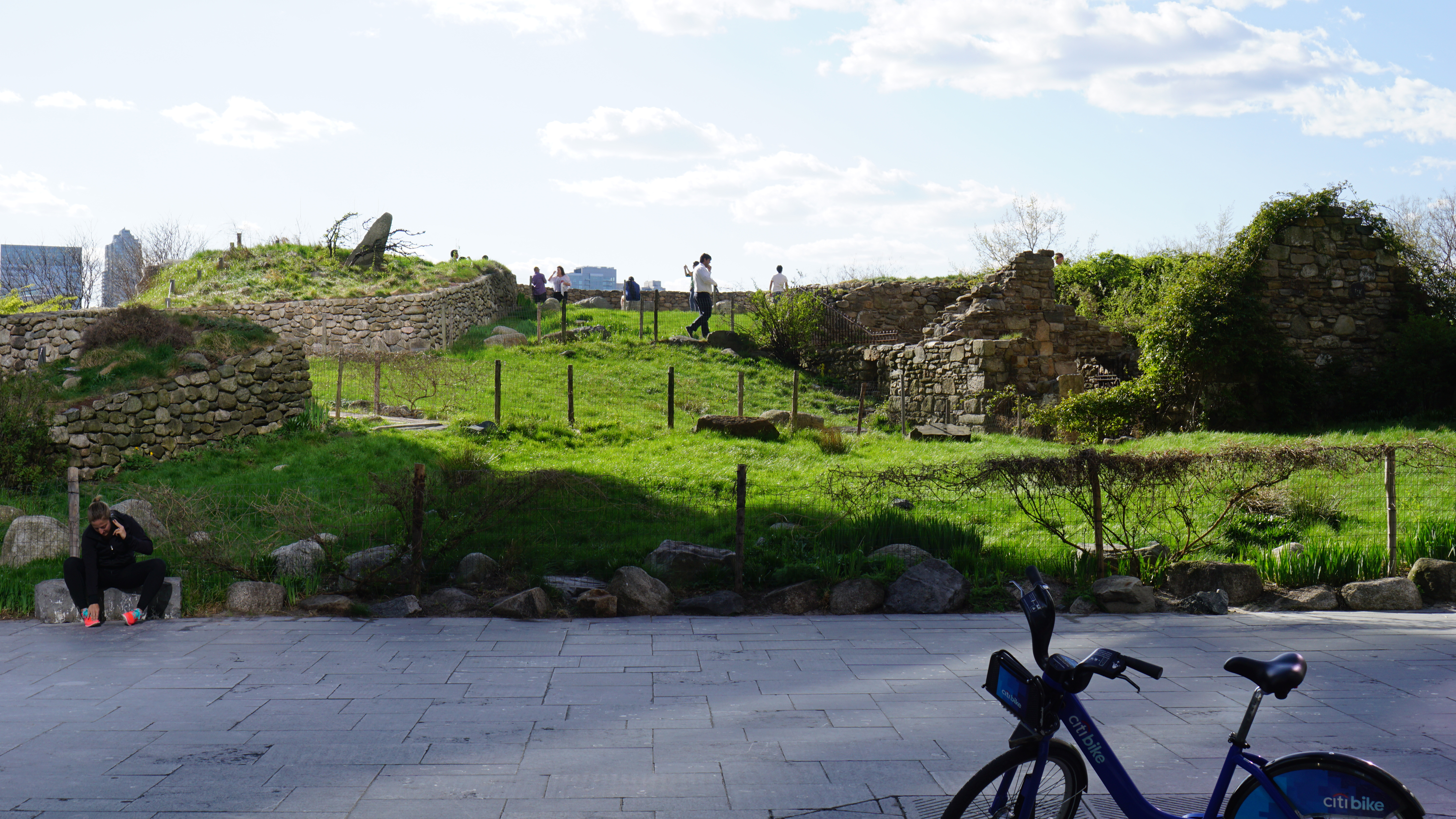This post has been read 3103 times!
 December 8, 2015- by Steven E. Greer
December 8, 2015- by Steven E. Greer
During the December 4th BPCA board meeting, they wanted the public to think that they approved the plan to spend $5.4 Million to repair the Irish Memorial. However, Chairman and CEO Dennis Mehiel stated, “Just because we approve this contract does not mean that we have to go forward with it”.
Other comments should make residents of BPC very anxious. Mehiel admitted that they explored the option of tearing down the memorial and allowing developers to build another tower, but he claims that they rejected that idea. He also mentioned that they are considering selling the air right over the memorial.
New board member Hector Batista asked why the memorial was needed at all. He urged that the BPCA not repair it and just tear it down.
The discussion lasted more than 20-minutes. It is best that viewers watch it for themselves.
On December 16th, there will be a BPCA Town Hall. Make your voice heard. Let Cuomo know your vote counts.

Is there something like stop the chop where we can petition local leaders?
The Irish Memorial definitely needs to be repaired and retained. It is a beloved feature in BPC as evidenced by the many who visit and enjoy the view daily.
One does not have to be Irish (I am not) to enjoy and to appreciate the structure.
If Mr. Batista does not understand why the Memorial should be preserved, versus destroyed, then he needs to tender his resignation as he obviously is not interested in the residents or what they want.
The Irish Hunger Monument is a beautiful remembrance of the survivors of an ugly reality and is something that the residents of BPC should be proud of. In the NY Times Roberta Smith described the monument as “New York City’s equivalent of the Vietnam War Memorial in Washington, an unconventional work of public art that strikes a deep emotional chord, sums up its artistic moment for a broad audience and expands the understanding of what a public memorial can be.”
While not all residents of BPC are of Irish heritage (including me) the monument has a unique place in our neighborhood’s history. As noted by Roberta Smith, “Located just “two blocks from ground zero, the Irish Hunger Memorial is likely to be embraced by many as a symbol of the hundreds of firefighters, police officers, rescue personnel and office workers of Irish descent who died in the World Trade Center attack. It was half completed when the attack came, and its earth-moving equipment and raw materials were commandeered during the rescue effort. But local police officers and firefighters familiar with the project protectively guarded the half-finished memorial from inadvertent damage or dismantling.”
Referred to by the Irish as An Gorta Mor in Irish Gaelic, the Great Hunger began in 1845 when a deadly fungus attacked the island’s staple food, potatoes. The English government, which could have mitigated the disaster found many excuses not to. The potato blight brought slow starvation, rampant disease and escalating despair to the Irish. The famine killed over a million people in Ireland. In order to escape the famine, hundreds of thousands of Irish immigrants came to New York between 1847 and 1852. Today, almost 800,000 New York City residents trace their ancestry to Ireland.
The monuments location at Vesey and North End Avenue in Battery Park City is an important tribute to a group of immigrants that shaped New York City’s history. Where better to remember these Irish immigrants that fled Ireland for America than its current location where visitors can see Ellis Island and the Statue of Liberty?
Politicians should take heed, the Irish Hunger Monument is an emotional tribute to the ancestors of many voters in New York City and beyond and should not be dismantled for the short-term gains (payoffs?) for developers or current CB1 members.